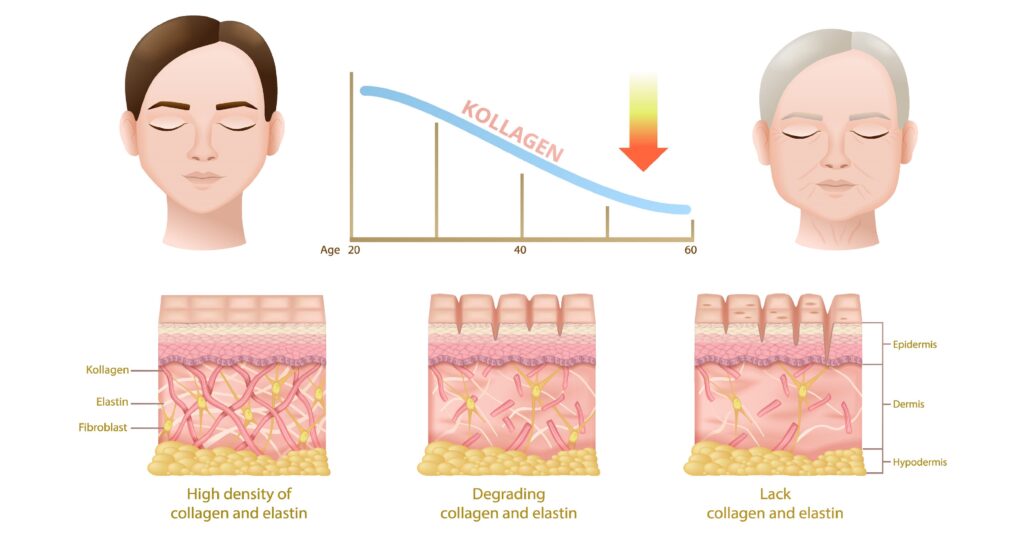Introduction:
Collagen is the most abundant protein found in our bodies and plays an essential role in maintaining strength, elasticity, and structure of skin, bones, and connective tissues. With age comes decreased collagen production which leads to wrinkles, sagging skin and joint stiffness – though collagen supplements are widely available, many prefer natural means to boost collagen synthesis instead. In this article we highlight five plant-based foods known for enhancing this process for maximum beauty and wellbeing benefits.
Understanding Collagen Production:
Before delving into specific foods, it’s crucial to gain an understanding of the factors affecting collagen synthesis. Collagen synthesis is determined primarily by how efficiently we absorb and utilize certain nutrients; also taken into consideration are environmental aspects like sun exposure and lifestyle choices that influence this process.
1. Vitamin C:
As a potency antioxidant, vitamin C plays a key role in collagen synthesis by encouraging production of collagen-forming enzymes and shielding existing collagen from damage caused by free radicals.
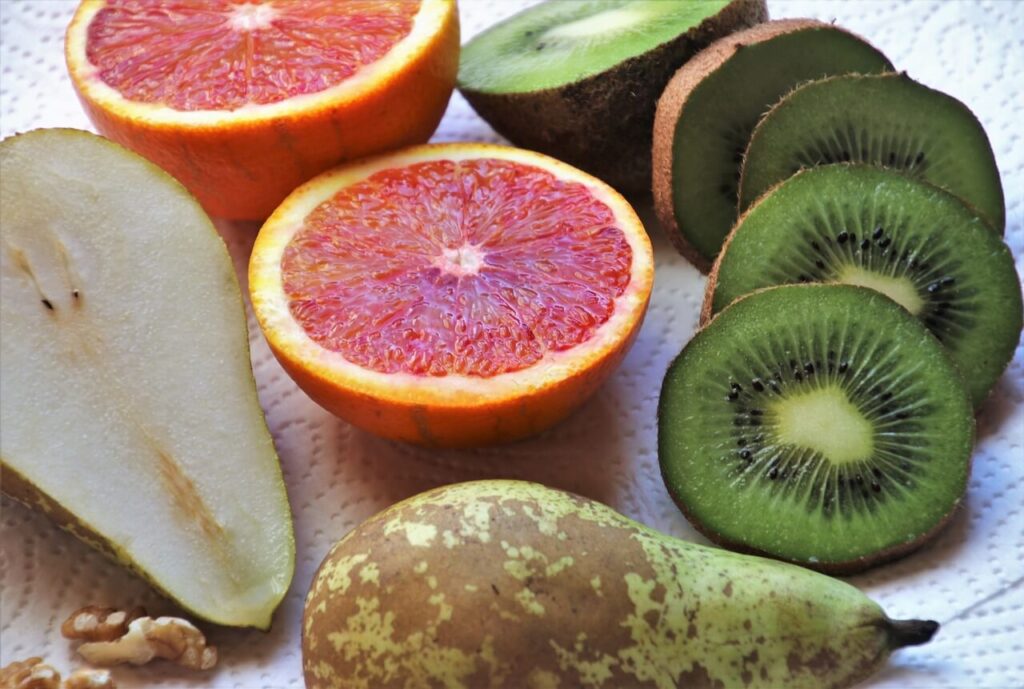
2. Antioxidants:
Vitamin A and E antioxidants help combat oxidative stress by protecting collagen degradation and maintaining skin elasticity and firmness.
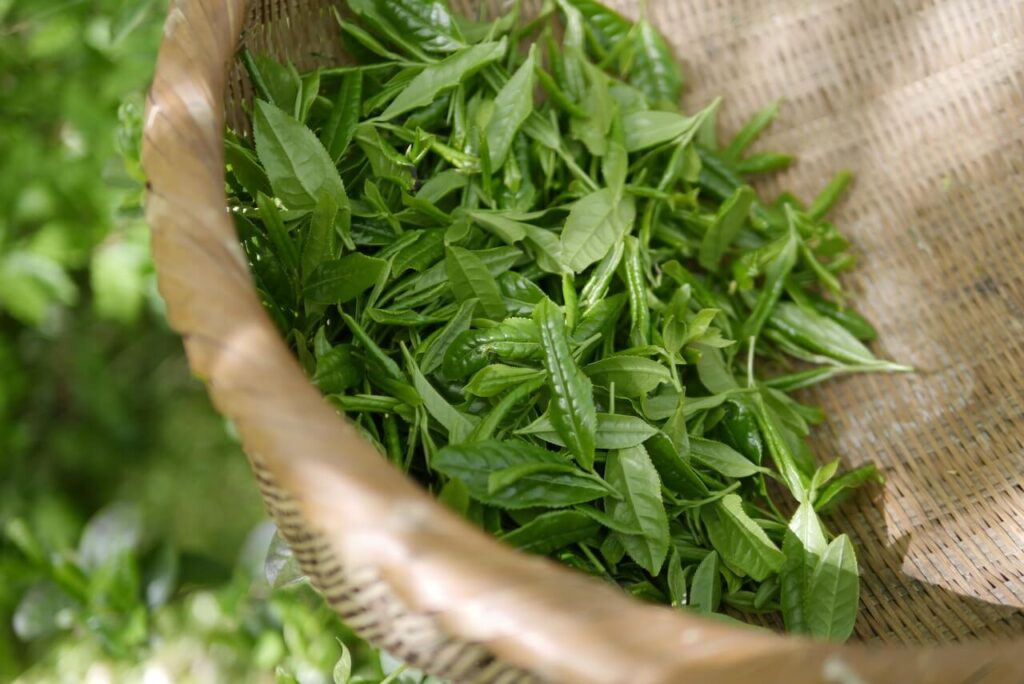
3. Protein:
Adequate protein consumption provides essential amino acids essential for collagen production, repair, and maintenance of connective tissues.
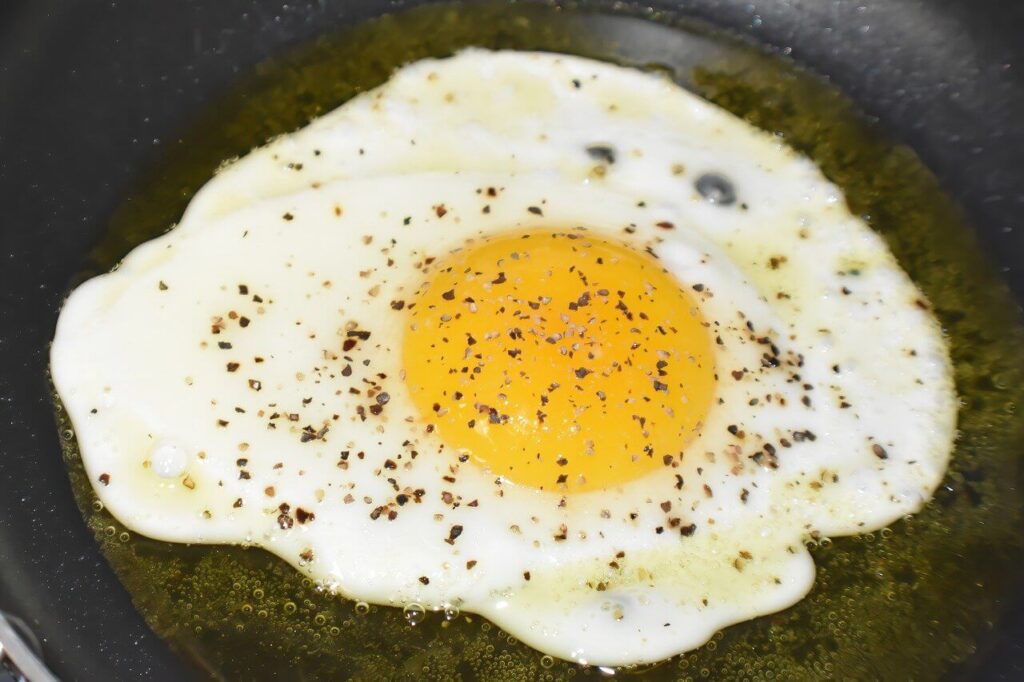
4. Hydration:
Maintaining optimal hydration levels is vital to healthy skin and collagen synthesis, as water serves to transport nutrients to cells while strengthening collagen fibers’ structural integrity.
Now, let’s explore five plant-based foods that provide collagen-supportive nutrients:

5. Berries:
Berries, like strawberries, blueberries and raspberries are packed with vitamin C and antioxidants that are proven to stimulate collagen production and reduce oxidative damage to cells. Eating more berries could support skin health while combatting signs of aging!
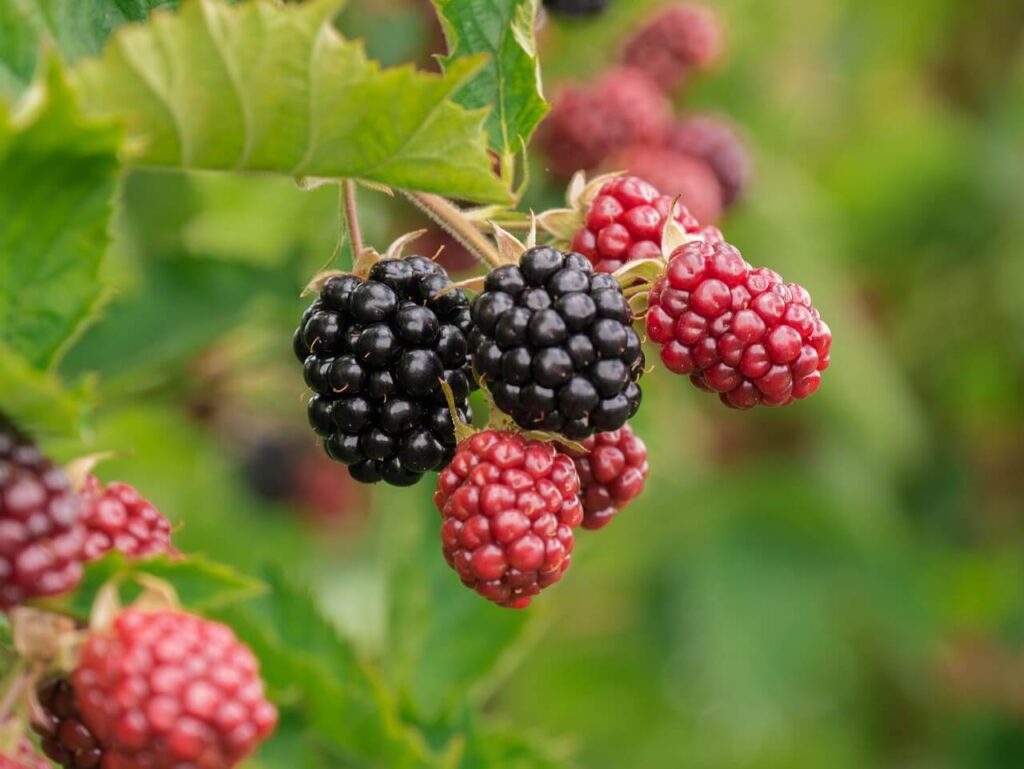
6. Leafy Greens:
Green vegetables like spinach, kale and Swiss chard are packed with essential vitamins A, C and E as well as minerals like magnesium and potassium that support collagen production while helping the skin stay hydrated and elastic. Incorporating leafy greens into salads, smoothies or stir-fries is an easy way to increase collagen intake and support its health benefits.
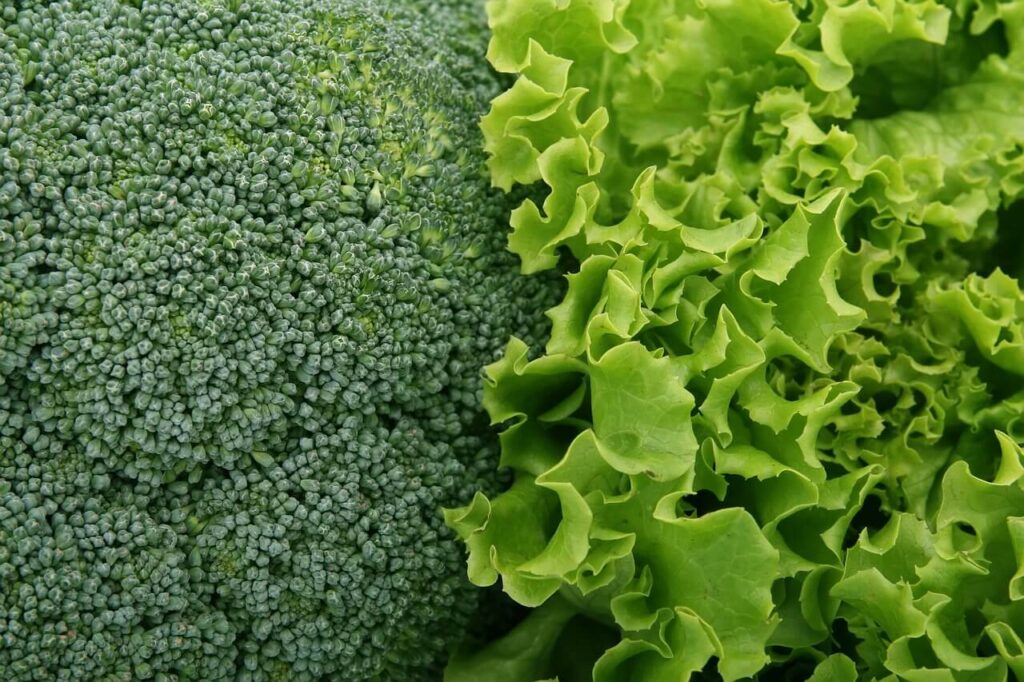
7. Nuts and Seeds:
Nuts and seeds such as almonds, walnuts, flaxseeds and chia seeds provide essential amino acids necessary for collagen synthesis as well as omega-3 fatty acids that support skin health while also reducing inflammation. Enjoying nuts as snacks or adding seeds to yogurt or oatmeal may contribute to your daily efforts towards building collagen.
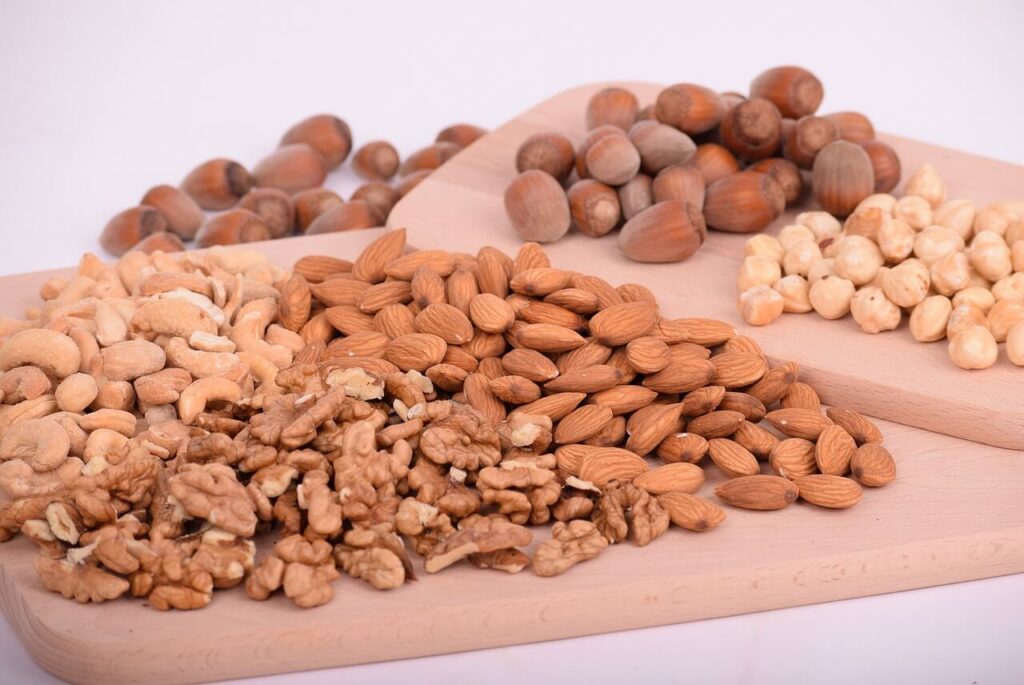
8. Citrus Fruits:
Oranges, lemons and grapefruits are known for their abundance of Vitamin C which is essential for collagen production and repair of skin tissues. Citrus fruits also contain bioflavonoids which enhance absorption of Vitamin C while providing additional antioxidant benefits – eating fresh citrus fruit as snacks or adding it to salads or smoothies can nourish skin from within!

9. Legumes:
Beans, lentils and chickpeas are nutritious sources of protein, fiber and essential minerals like zinc and copper that play an integral role in collagen synthesis and skin health – supporting production of collagen fibers while aiding wound healing processes. Incorporating legumes into soups, stews, salads or grain bowls will add an nutrient-rich boost for collagen building efforts.
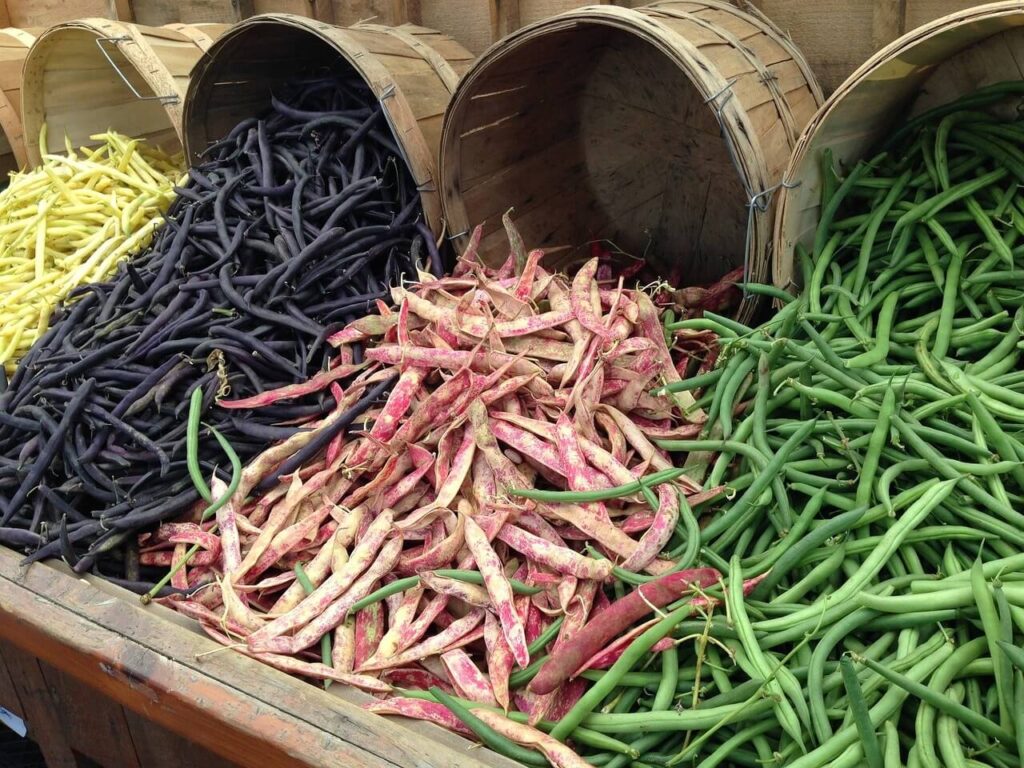
Add these five plant-based foods to your diet for maximum benefits that will support collagen production, encourage youthful skin, and increase overall vitality. By fueling your body with foods rich in vitamins, antioxidants and proteins that promote overall wellness, you can take steps towards maintaining radiant, youthful-looking skin at any age. Ensure a balanced diet while staying hydrated to maximize these collagen-enhancing foods’ effect on the skin.
Conclusion:
FitnessYog, As our exploration into collagen production and vegetarian foods has revealed the remarkable relationship between nutrition, skin health and overall vitality, we’ve discovered an array of plant-based foods which support collagen synthesis naturally and promote radiant skin.
Vitamin C-packed fruits like citrus and berries and protein-rich legumes like beans and lentils play an essential part in supporting collagen production. Furthermore, omega-3 fatty acid sources like flaxseeds and walnuts, along with antioxidant-rich vegetables like spinach and kale may further promote skin elasticity while fighting the signs of aging.
Research has also demonstrated the significance of eating a diet rich in vitamins, minerals and phytonutrients to support optimal collagen synthesis and overall health. Although collagen supplements may offer some individuals benefits, vegetarian food offerings contain plenty of collagen-boosting components which provide accessible yet sustainable solutions to nourish skin from within.
Opting for a holistic approach to skincare and nutrition allows individuals to nurture glowing skin and vibrant well-being. Harnessing nature’s bounty while making conscious dietary choices will pave the way toward ageless beauty and optimal health – helping your body thrive from within out!
